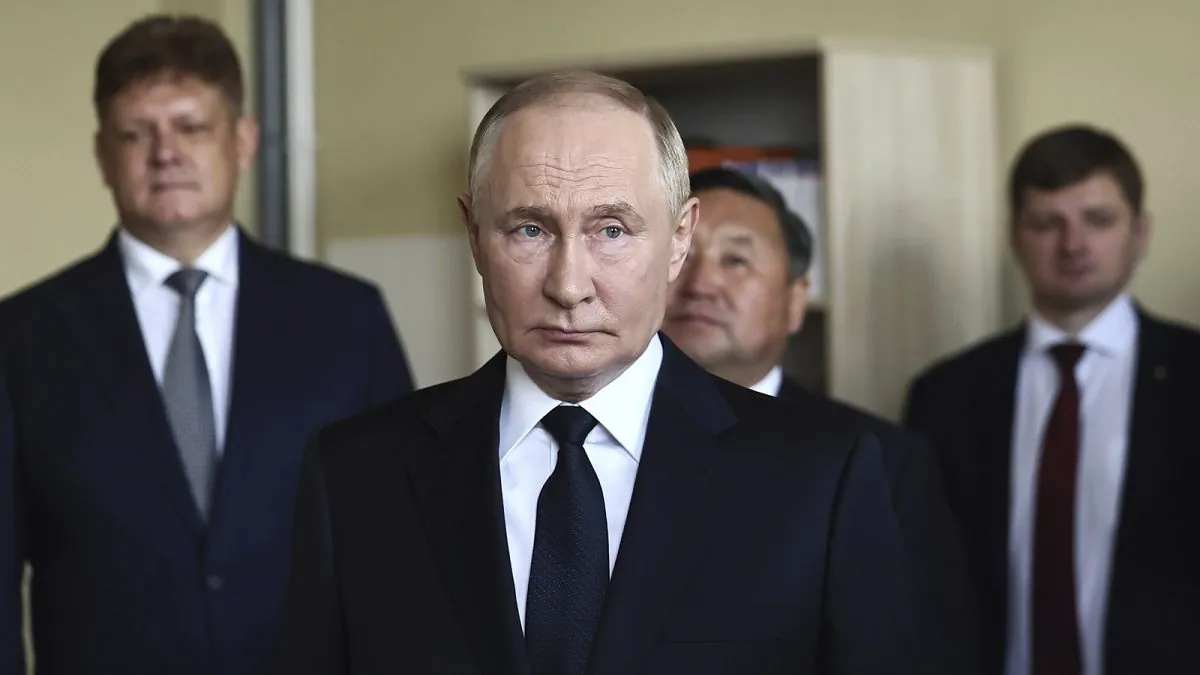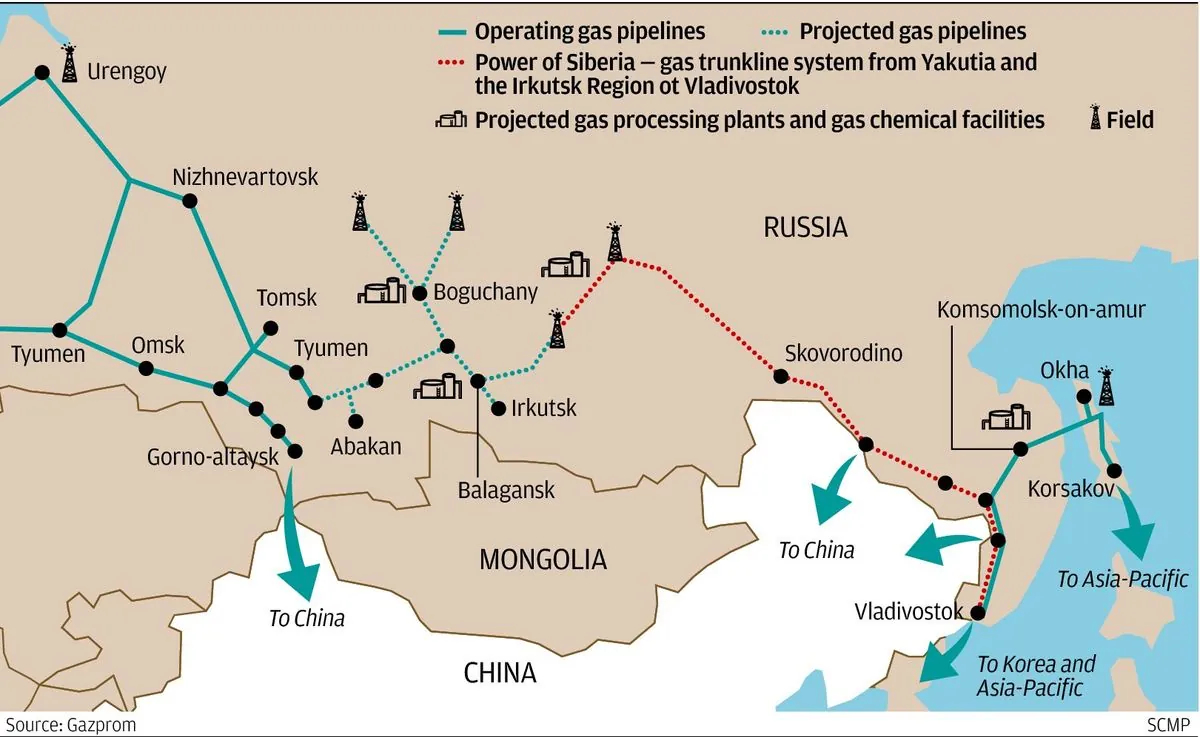Putin Visits Mongolia Amid Gas Pipeline Plans and ICC Warrant Concerns
Russian President Vladimir Putin arrives in Mongolia for talks on a major gas pipeline project. The visit proceeds despite Ukraine's call for his arrest based on an ICC warrant.

Vladimir Putin, the Russian President, has arrived in Mongolia for a state visit, as reported by the Kremlin on September 2, 2024. This visit is significant due to its connection with a proposed gas pipeline project and ongoing international legal issues.
The primary focus of the visit is the planned Power of Siberia 2 pipeline, which aims to transport natural gas from Russia's Yamal region to China via Mongolia. This project is part of Russia's strategy to diversify its energy exports following reduced gas sales to Europe since the onset of the conflict in Ukraine.

The proposed pipeline is designed to carry 50 billion cubic meters (bcm) of natural gas annually, complementing the existing Power of Siberia pipeline. The current pipeline, operational since 2019, is expected to reach its full capacity of 38 bcm per year by 2025.
Putin is scheduled to meet with Mongolian President Ukhnaagiin Khurelsukh on September 3, 2024, to discuss various aspects of the project. Despite ongoing negotiations over key issues such as gas pricing, Putin stated that preparatory work, including feasibility and engineering studies, is progressing as planned.
The visit has attracted attention due to an International Criminal Court (ICC) warrant issued against Putin in 2023. The warrant accuses him of war crimes related to the alleged deportation of Ukrainian children. In response to this, Ukraine urged Mongolia, an ICC member since 2002, to arrest Putin.
"All of the aspects of the visit have been thoroughly discussed."
The Kremlin has dismissed the ICC accusations as politically motivated and expressed no concerns about Putin's trip. It's worth noting that while Mongolia is one of the 123 ICC member countries, Russia withdrew its signature from the Rome Statute of the ICC in 2016.
This visit underscores the complex interplay of energy politics, international relations, and legal challenges in the region. As the world's largest natural gas exporter, Russia's moves in the energy sector, particularly in relation to China, the world's largest energy consumer, have significant global implications.
The Power of Siberia 2 project, if realized, would span approximately 2,600 km, further solidifying energy ties between Russia, Mongolia, and China. For Mongolia, a country with an economy heavily dependent on mining, this project could provide new economic opportunities.
As these events unfold, the international community watches closely, recognizing the potential impact on global energy markets and geopolitical dynamics in the region.


































